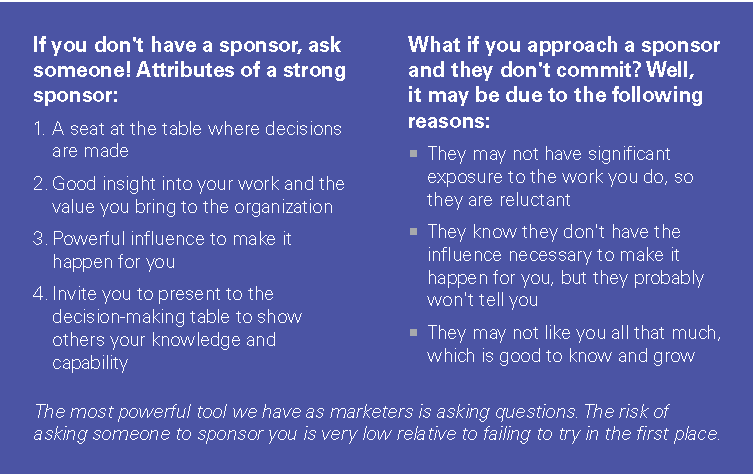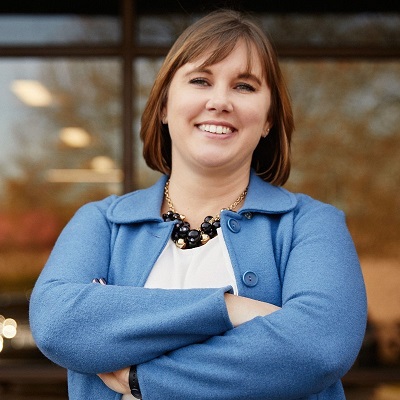
Women + AEC: Get a Sponsor, Be a Sponsor, and Champion Women in Leadership
We like to think that leaders will take notice of the merits of our work and promote us accordingly. However, there are no true meritocracies. The A/E/C industries remain a relationship business where mentors are nice to have, but sponsors are even better, especially for women.
Fast Company contributor, Vivian Giang, notes that many industries, unfortunately, don’t have enough females in decision-making roles to be internal champions for women to ascend in their respective firms. Hence, male colleagues in leadership play a critical role in sponsoring their female co-workers.
Mentors and Sponsors
To break this down, mentors share experiences, knowledge, and lessons learned to support a mentee in their careers. This insight is invaluable because it enables someone to plan effectively, avoid pitfalls, and potential career derailers. In simple terms, a mentor can help you see around corners. As a mentor, you make an impact, but you don’t necessarily have to invest any of your social capital in someone. You have little to lose as a mentor. Therefore, mentor as many people as you can because it typically only costs you your time.
Conversely, a sponsor invests their power and influence to help advance and develop your career by being your internal champion. According to Carla Harris, Senior Advisor with Morgan Stanley and author, a sponsor takes your paper, so to speak, into the room where bonuses and talent decisions are determined. Behind closed doors, the merit of your work may not be well presented without the support of a sponsor to make your case. Sponsors put their reputations on the line on your behalf.
Performance and Relationship Currency
Harris notes that everyone loves a star, so building your performance currency and relationship currency is imperative to be recognized. Performance currency is delivering more than is asked of you. If you do this consistently, you will be recognized, which is half the battle. Relationship currency is building a rapport with people who will value you beyond your contribution to your work. When you build relationship currency, you connect with a colleague and build a foundation of mutual trust.
When you think of performance and relationship currency, you may want to consider who in the leadership team has insight into the value of your contribution (performance currency)? To what extent do they also value my character in a way that they will fight for me (relationship currency)?
Do you have a sponsor? You can bet many of the people at the table where the most critical decisions are made had a sponsor at some point. So when you think about a sponsor, you may want to consider if they have a seat at the table where decisions on your future are made. It is also vital to know if they have exposure to your work so that they can communicate your value to the organization on your behalf. Lastly, and maybe most essential, do they have the “juice” or influence to make it happen for you? If so, how much currency have you built up with this person?
Calling All Sponsors
If you are thinking, “What if I see myself as a sponsor?” Excellent! Here is something to consider. In a recent gender study on sponsorship, 71% of sponsors said they were the same gender or race as the person they sponsored. This is why sponsoring people who may not look like you is essential, particularly if you are a white male in a decision-making role. It stands to reason that if 90% of the built environment is male, then men will sponsor men.
When looking for someone to sponsor, be aware of unconscious bias, a prejudice that we may not be “aware” of, and it may lead us to favor one group over others. We can keep this bias in check by broadly considering sponsorship of those external to our typical network or inner circle. The Center for Creative Leadership notes that images and ideals of leadership have historically been associated with stereotypical masculine qualities; hence women are less likely to be perceived as “leadership material” as compared to men.
Stacy Cassio, founder of Pink Mentor Network, an organization focused on reshaping how individuals utilize mentorship and helping organizations build cultures of sponsorship, claims, “women in male- dominated industries, like A/E/C, will find themselves underrepresented in many rooms, conversations, and business decisions. However, it’s extremely important that women have a voice and share our insights as we represent an entire gender’s perspective. Finding industry sponsorship is like being armed with advocates who give us the courage and confidence to show up authentically.”
We are not suggesting that you sponsor men less but that you also sponsor women along the way. The best way to spread your influence is to spend your influence in support of others.
Guess what? There are risks to sponsorship. We are human, and someone will let us down and fall short of delivering on the investment you made in them. They may not fit the role or derail along the way. That’s life. However, if you have a seat at the table where decisions on promotions and compensation are determined, and you know someone is worthy of your support and sponsorship, the cost of a letdown is much less than the risk of losing a great team player who may continue to rise within the industry somewhere else.
Cassio expands on the idea of mentorship and sponsorship by noting, “I encourage women to find masters of the skills they want to develop. Learn how they became good at what they do. Borrow their ’tools’ and add them to your ’toolbox.’” Cassio suggests you extend gratitude for a person’s time and continue nurturing the relationship. She explains that these touchpoints may not immediately convert to sponsorship, but it enables you to plant a seed to build an enduring relationship. Cassio also offers a practical suggestion, “Don’t make it awkward. Start by asking to learn from someone else’s experiences and expertise.” People typically are gracious in helping others be successful. If someone is unwilling to lend you support as a mentor or sponsor, move on because someone in your network will be in your corner.
We write this article knowing that we both benefited from having sponsors support us in our careers. And we continue to sponsor one another in our industry, which is just as important. So if you need a sponsor, ask for one. If you aren’t a sponsor, recruit one.

SARA DOWNING, CPSM, is Director of Project Development at Clancy & Theys Construction (Charlotte, NC) and former SMPS chapter president. Sara has been involved with SMPS on the national and regional levels. Currently she serves on the programs committee for SMPS Charlotte.
BEN WILHELM, DBA, MSOD, is President & COO at, McFarland Construction (Charlotte, NC) and a former SMPS chapter president. Ben is also an adjunct faculty member at Queens University of Charlotte where he teaches graduate courses in organizational behavior.


This article originally appeared in the February/March 2023 issue of SMPS Marketer, The Journal of the Society for Marketing Professional Services (SMPS). Reprinted with permission.






